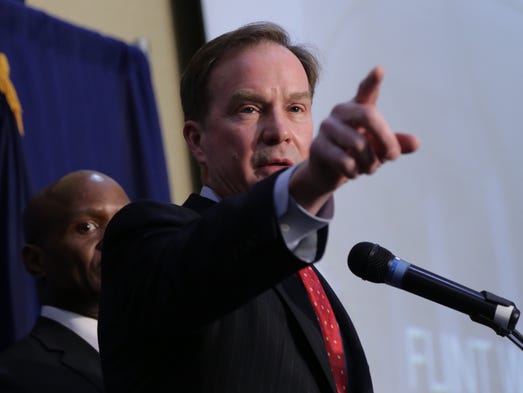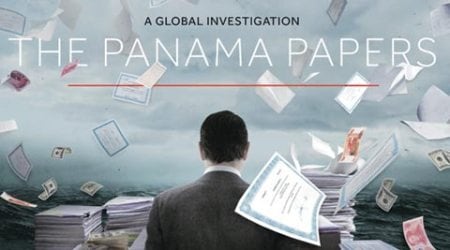 Workers Memorial Day (April 28) is not one of those holidays on which to give thanks and feel good. It is a time to be angry about the fact that nearly 5,000 people each year are killed on the job in the United States in accidents that in many cases were the result of management negligence. Millions more are injured or contract occupational illnesses. The just-published 25th edition of the AFL-CIO’s Death on the Job annual report makes for sobering reading.
Workers Memorial Day (April 28) is not one of those holidays on which to give thanks and feel good. It is a time to be angry about the fact that nearly 5,000 people each year are killed on the job in the United States in accidents that in many cases were the result of management negligence. Millions more are injured or contract occupational illnesses. The just-published 25th edition of the AFL-CIO’s Death on the Job annual report makes for sobering reading.
While this day is a time to “remember those who have suffered and died on the job,” it should also be an occasion to point the finger at those corporations which have done the most to cause those outcomes. A list can be found by consulting Violation Tracker, the database my colleagues and I at the Corporate Research Project of Good Jobs First introduced last fall.
We identified thousands of individual companies that have been hit with serious, willful and repeated violations by the Occupational Safety and Health Administration since the beginning of 2010, and we linked many of those to parent companies. These large firms, which have the resources to ensure safe conditions, probably bear the most responsibility for workplace harms. Here’s a dishonor roll of big business occupational safety culprits.
BP. The British oil giant with extensive U.S. operations is a poster boy for safety lapses. Since the beginning of 2010 it has had to pay more than $60 million to settlement OSHA cases — an amazing amount given the pitifully low levels at which the agency’s standard penalties have been kept by Congress. Most of the penalty total derived from an explosion at the company’s Texas City refinery that killed 15 workers and injured 180 others.
Louis Dreyfus Group. This French conglomerate is on the list because of its ownership of Imperial Sugar, which in 2010 had to pay OSHA $6 million to settle more than 120 violations linked to a 2008 explosion at its plant in Port Wentworth, Georgia.
Tesoro. Criticized by the United Steelworkers for its safety shortcomings, the oil refiner has accumulated some $2.5 million in OSHA penalties since 2010. A report by the U.S. Chemical Safety Board cited “safety culture deficiencies” as among the causes of a 2010 explosion at a Tesoro refinery in Anacortes, Washington that killed seven workers.
Dollar Tree. This deep-discount retailer has racked up more than $2 million in OSHA penalties since 2010 because of repeated violations for piling boxes in storage areas of its stores to dangerous heights and blocking emergency exits.
Ashley Furniture. This retailer and manufacturer was fined $1.8 million last year for 38 willful, serious or repeated violations at a plant in Wisconsin stemming from the company’s failure to protect workers from moving equipment parts. One worker lost three fingers while operating a woodworking machine lacking required safety protections. OSHA later proposed another $431,000 in fines for similar problems at another Ashley facility.
Chevron. The petroleum giant has been hit with more than $1 million in OSHA fines since 2010, most of that amount coming from a slew of serious violations relating to a 2012 fire at the company’s refinery in Richmond, California.
While remembering fallen workers let’s not forget these companies and others whose negligence was often to blame.

 The publication of the
The publication of the  For more than 30 years, Donald Trump has been almost continuously in the public eye, portraying himself as the epitome of business success and shrewd dealmaking.
For more than 30 years, Donald Trump has been almost continuously in the public eye, portraying himself as the epitome of business success and shrewd dealmaking.
You must be logged in to post a comment.